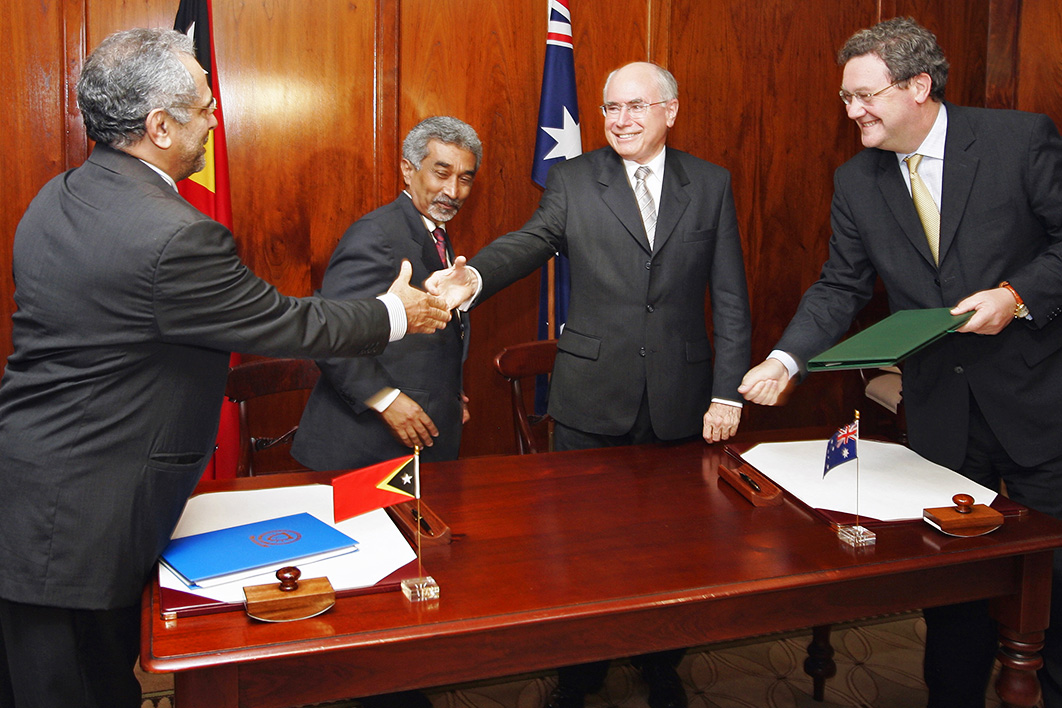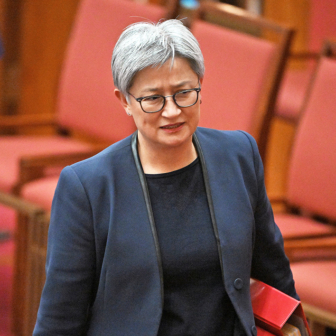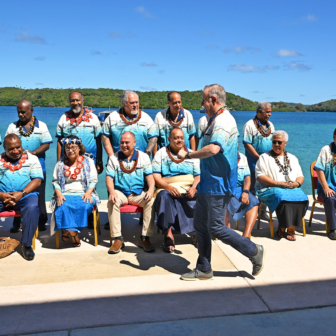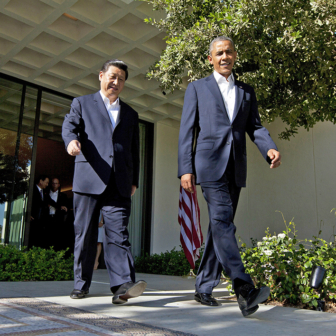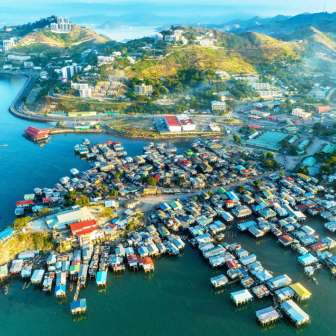A curious narrative has built up around attorney-general Christian Porter’s decision to allow the prosecutions of lawyer Bernard Collaery and a former officer of the Australian Secret Intelligence Service known as “Witness K.” Porter’s aim, the story goes, was to protect the reputation of former foreign minister Alexander Downer and his prime minister, John Howard, over the planting of listening devices in Timor-Leste’s government offices during maritime boundary negotiations in 2004.
One example came in Crikey last week, when Canberra columnist Bernard Keane wrote that “Porter’s authorisation of the prosecution of Witness K and Bernard Collaery for revealing ASIS’s crime is intended to punish them for exposing Downer and the Howard government. Porter’s conduct in the prosecution, however, is designed to cover up Downer’s role.”
If that has been the motive, it has been an abject failure. Nearly every article about the case repeats the assumption that the bugging operation was not only authorised by Downer but also probably approved by Howard. And oblique support for that supposition came in an interview just given by the present director-general of ASIS, Paul Symon, to the Australian Strategic Policy Institute and posted on ASPI’s website. The interviewer, former senior ABC journalist Graeme Dobell (an Inside Story contributor) didn’t specifically ask about the Dili operation.
Symon told Dobell that ASIS has three functions: collecting intelligence, liaising with foreign intelligence services, and what he called “disruptions or activities that are probably going to be enabled by good intelligence.” It could be “disrupting a terrorist or some type of activity where there is an action that occurs,” he said, but it required high-level authorisation. “Those activities I can’t authorise, they have to be authorised by the [foreign] minister,” who “also needs to consult other ministers, including the prime minister, who may be affected or impacted by those activities that we do.”
The Dili operation involved ASIS technicians purporting to be an Australian aid team refurbishing Timor-Leste’s cabinet room and other senior ministerial offices. There, they planted listening devices capable of transmitting audio to a nearby listening post in a floating hotel, for recording and transmission to Canberra.
The assumption has been that Timor-Leste’s tactics in the maritime boundary negotiations were the main target. Those talks were extremely heated, with Downer eventually pressuring the country’s then prime minister, Mari Alkatiri, into signing a deal that split revenue from the Great Sunrise offshore gas field fifty–fifty between Australia and Timor-Leste and deferred settlement of a permanent maritime boundary.
Given the risk to Australia’s international standing and bargaining position, is it likely to have been a routine intelligence-gathering operation authorised by then ASIS chief David Irvine off his own bat? Or was it a major “disruption” operation requiring Downer’s ministerial approval and possibly a referral to the prime minister and other members of the cabinet’s national security committee? (Its members at that time were treasurer Peter Costello, defence minister Robert Hill, attorney-general Philip Ruddock and immigration minister Amanda Vanstone.)
The widespread assumption is that the buck went at least as far as Downer. As Spencer Zifcak, professor of law at the Australian Catholic University, wrote in the Conversation, for example: “The prosecutions arose from the disclosure of information related to a covert ASIS spying operation — the bugging of the cabinet offices of Timor-Leste. The operation was authorised by Alexander Downer, then foreign minister, in 2004.”
Many commentaries have drawn an invidious line from the bugging to the fact that Downer’s department head, the late Ashton Calvert, joined the board of Woodside Petroleum, heading the Greater Sunrise development consortium, soon after retiring in 2005, and that Downer himself became a consultant to Woodside after he left politics in 2007.
Disclosure of the ASIS operation occurred after the officer directing it, Witness K, protested internally in 2008 and was guided, first, to the inspector-general of intelligence and security, and thence to Bernard Collaery, a former ACT attorney-general entrusted to handle official secrets.
The last step in that chain involved one of the intelligence community’s more bizarre failures to connect dots. Collaery was also a long-time legal adviser to Timor-Leste’s founding president, Xanana Gusmão. When the Dili bugging was leaked to the media — it is unclear by whom — it became a wedge for the Timorese to reopen the maritime treaty on the grounds of Australia’s “bad faith” negotiations.
Despite an ASIO raid on Collaery’s office in 2013, and despite the seizure of Witness K’s passport to prevent him from testifying, Timor-Leste managed to drag Australia into formal conciliation proceedings at the Permanent Court of Arbitration at The Hague. Australia eventually caved in, conceding a new deal giving Timor-Leste 70 to 80 per cent of Greater Sunrise revenues. The deal was signed in March 2018 and ratified in August last year.
While this was going on, Commonwealth prosecutors working on evidence collected about Collaery and Witness K drew up charges under intelligence secrecy laws. But George Brandis, federal attorney-general until he departed for London as Australian high commissioner in December 2017, refused to give the necessary authorisation to prosecute.
Possibly he thought that such a prosecution would be seen to confirm the bugging. Perhaps he felt it was a bad look in front of the eminent judges at The Hague to be prosecuting a lawyer and a key witness for the opposing side in an ongoing case. Or perhaps he realised a prosecution would only give more attention to a sorry example of dirty tricks.
But his successor seems to have had no such qualms. In June 2018, six months after taking over as attorney-general, Christian Porter gave the green light to the director of public prosecutions to charge Collaery and Witness K with conspiracy to communicate secrets to Timor-Leste between 2008 and 2013. More than two years later, the pre-trial proceedings are still dragging on, with an ACT Supreme Court judge agreeing to Porter’s contention that much of the trial itself will have to be held in camera to avoid damaging the national interest.
Collaery is appealing this requirement. Should he be successful, Porter will undoubtedly have to weigh whether the case is worth pursuing in public. As it is, his department’s bill for outside legal advice had exceeded $3 million by early October.
If his aim is to protect Downer’s reputation, the egg is already all over the former foreign minister’s face. If it’s to protect Downer or any official from criminal offences, the ASIS legislation seems to indemnify everything short of murder as long as it’s committed outside Australia’s jurisdiction. If it’s simply a punitive move to deter others from leaking, a better solution might be to strengthen supervision of intelligence operations to make them accord with Australian values.
In his ASPI interviews, Symon indicated that better supervision had been attempted within ASIS after Witness K raised his objections internally. Asked about the “tensions” experienced by ASIS officers being told to “go overseas and break the rules,” he responded: “It is true that we have in the last ten years or so strengthened ethics. We have an ethics counsellor inside the organisation. We have a number of avenues that if an officer at any point in time feels the sort of tension that you’re describing and wants to opt out, they can.”
If they don’t want to opt out, he went on, they might simply “want to sit down and have a conversation and want to be clear in their own mind about that relationship between ethics, morals and what they’re being asked to do with an agent. So, we’ve embedded that in the organisation and it works very well.”
If this is an admission that Witness K’s misgivings weren’t handled well, and if the system has been fixed, then why pursue exemplary punishment?
The director of public prosecutions, Sarah McNaughton, is not obliged to proceed with any case, but must weigh the prospect of conviction against other factors including the broader public interest. Last month she decided it was not in the public interest to prosecute ABC journalist Dan Oakes over his revelation of war crimes allegedly committed by Australian soldiers in Afghanistan.
It’s hard to see the public interest being served by bringing this case to trial. Having the bugging dragged up repeatedly for conjecture and perhaps further disclosures certainly isn’t in the interests of his Coalition colleagues, present and retired, or of ASIS. With the maritime boundary settled, the incident could have been allowed to recede, only half-revealed and not admitted, into history. •
